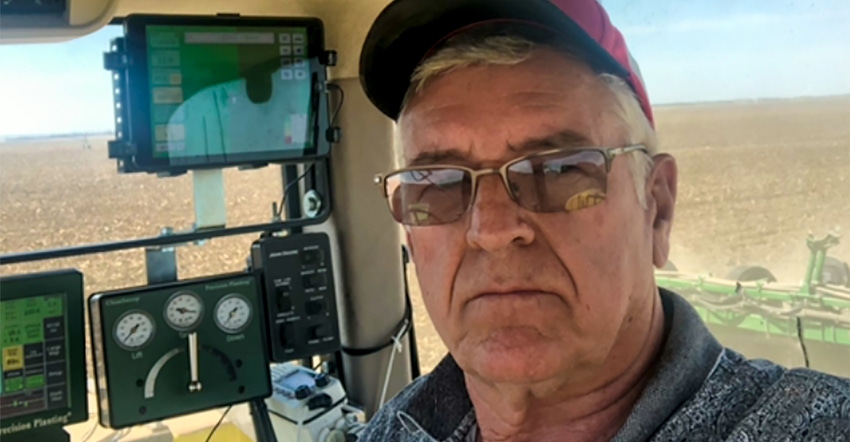
Since the spring of this year, COVID-19 has caused disruptions in almost every sector of the economy. And although agriculture has been affected, producers have pressed on as they always have, getting crops in the ground and harvesting despite the global pandemic and despite persistent dry conditions across Nebraska and other parts of the Midwest.
While farmers and ranchers are, by the nature of their work, adept at social distancing, COVID-19 has managed to work its way into rural areas, and some have — despite their best efforts — contracted or know someone who has contracted the virus.
That was the case for David Bruntz, who farms with his wife, Ann, near Friend, Neb. Bruntz tested positive for COVID-19 in late June.
Related: Complete coronavirus coverage
"I have no idea where I picked it up. There are a lot of things we still don't know about COVID-19," Bruntz says. "On a Saturday at noon, I was running a low fever and not feeling good. On Sunday, I told Ann I should get tested. We called the medical clinic. I got tested on Monday and found out on Wednesday I was positive."
David and Ann were practicing social distancing, wearing masks and only going into town to buy groceries and supplies when needed.
"Back in spring, when we needed to get planting supplies and chemicals, you just went and got it," David says. "You didn't stand around and talk to people. You didn't spend extra time socializing, and that allows the people who are farming to isolate themselves."
"It's not necessarily that we did anything wrong," Ann says. "The 10 to 12 days before David got sick, we spent more time closer to home than we had for a month."
Fortunately, Ann never tested positive for the virus, and David recovered without any major issues — although he dealt with a fever for a week, along with a dry cough and loss of energy.
Managing with COVID-19
When it comes to agriculture and rural communities, people are quick to step up and help when a neighbor is in need. That includes service providers and dealers that regularly work with producers.
"Case in point, when David got sick, the next day we had a terrible windstorm and lost a pivot on a soybean field that night," Ann says. "We needed a whole new pivot, and our local Reinke dealer stepped in and after a phone call, he came over wearing a mask to make sure they were doing everything right. He took care of everything within a week."
Fortunately, David didn't get sick during harvest or planting. For those who make a living farming or ranching, getting sick doesn't mean responsibilities go away — someone still has to do daily chores, work and wean calves, and harvest corn and soybeans.
David advises growers who contract the virus to write down the necessary tasks so that neighbors, friends and family who step up to help have a good idea of what needs to be done and how to do it.
"There needs to be some kind of information so that things are done in the manner they were planned to be done," he says. "We grow so many kinds of corn and beans in Nebraska. For example, if you're planning on growing high oleic beans, you can't mix them in with your other beans, or you would lose your premium. You'd hate to have your neighbors harvest the field, and then lose your premium. You can't blame them for that if you haven't told them."
Moving forward, David and Ann advise people to use common sense during the pandemic — and that means washing your hands, using hand sanitizer, wearing masks and social distancing.
"Most people in agriculture are now using more hand sanitizer and taking more precautions than they ever did," Ann adds. "In a normal year, we're used to eating out in the field during harvest without washing our hands. We think twice about that now. We didn't think about it before. Yet, as a population of farmers, or agriculturists, I would say we've had fewer cases."
"At the point we're at, where we're wearing masks almost in all public places, we may just need to get used to that for a while," David says. "Until we get a vaccine, we're going to have to be very cautious. I was very fortunate that I wasn't extremely sick and didn't need to be hospitalized."
Read more about:
Covid 19About the Author(s)
You May Also Like






